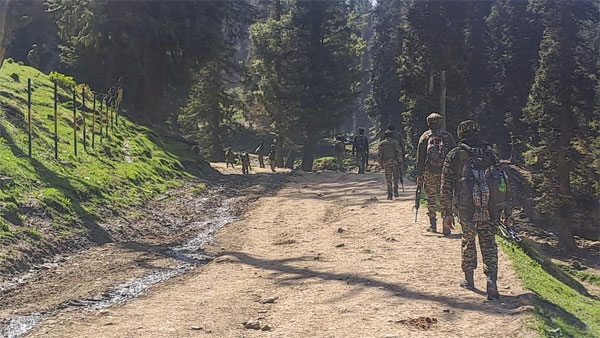Daijiworld Media Network - Srinagar
Srinagar, Sep 24: In a significant breakthrough, Jammu and Kashmir Police have arrested Mohammad Kataria, a key suspect accused of providing logistical support to the terrorists responsible for the April 22 Pahalgam attack, which left 26 civilians dead. The arrest follows forensic examination of weapons and equipment recovered during Operation Mahadev in July, where three attackers were neutralized by security forces.
This latest arrest deepens an ongoing investigation by the National Investigation Agency (NIA), which has already detained multiple individuals linked to the plot. In June, the NIA arrested Parvaiz Ahmad Jothar from Batkote and Bashir Ahmad Jothar from Hill Park, Pahalgam, for allegedly sheltering the attackers and revealing their identities. Another man from Handwara was also picked up earlier in connection with the funding network behind the assault.

Investigators have since uncovered a complex and coordinated terror financing chain with international links. Central to the network is Yasir Hayat, who is believed to have received instructions from Sajad Ahmed Mir, a suspected Pakistan-based handler currently residing in Malaysia. Hayat allegedly transferred ?2 lakh to an operative named Shafat Wani and remained in contact with two Pakistani nationals during a visit to Malaysia.
So far, Wani is suspected to have received up to ?9 lakh, which authorities say was used to support terror operations in the Valley. The NIA has identified Malaysia-based bank accounts and transactions that suggest a broader international effort to funnel funds into India to support militant outfits.
The funding, according to Indian agencies, was channelled to The Resistance Front (TRF), a proxy group of Lashkar-e-Taiba (LeT) allegedly created by Pakistan’s intelligence agency, the ISI. TRF is seen as a tool to manufacture a narrative of indigenous militancy in Kashmir, thereby giving Pakistan and LeT plausible deniability after attacks on Indian soil.
Security agencies, including Indian intelligence, J&K Police, and the NIA, are in the process of compiling a comprehensive dossier that details the outfit’s recruitment, training, radicalisation, and funding mechanisms. The objective is to expose the foreign financing routes, especially those linking back to Pakistan, and strengthen India’s case at international platforms.
New Delhi is preparing to leverage this evidence at the Financial Action Task Force (FATF) in a bid to push Pakistan back into the Grey List, arguing that it continues to serve as a hub for terror financing despite past warnings and sanctions.
The investigation is ongoing, with over 450 phone numbers under scrutiny, many of which have connections to terrorism-related cases dating back to 2011. Authorities expect further arrests and revelations as the financial and operational web behind the Pahalgam attack is unraveled.